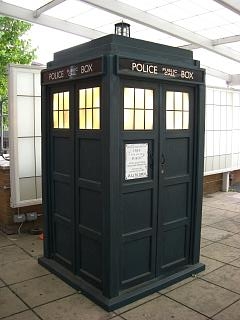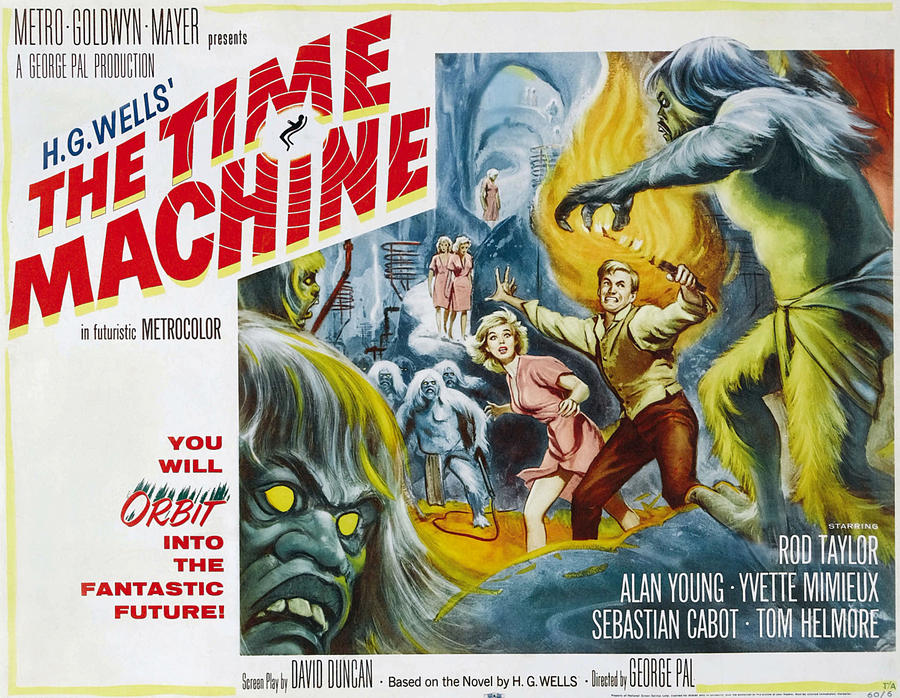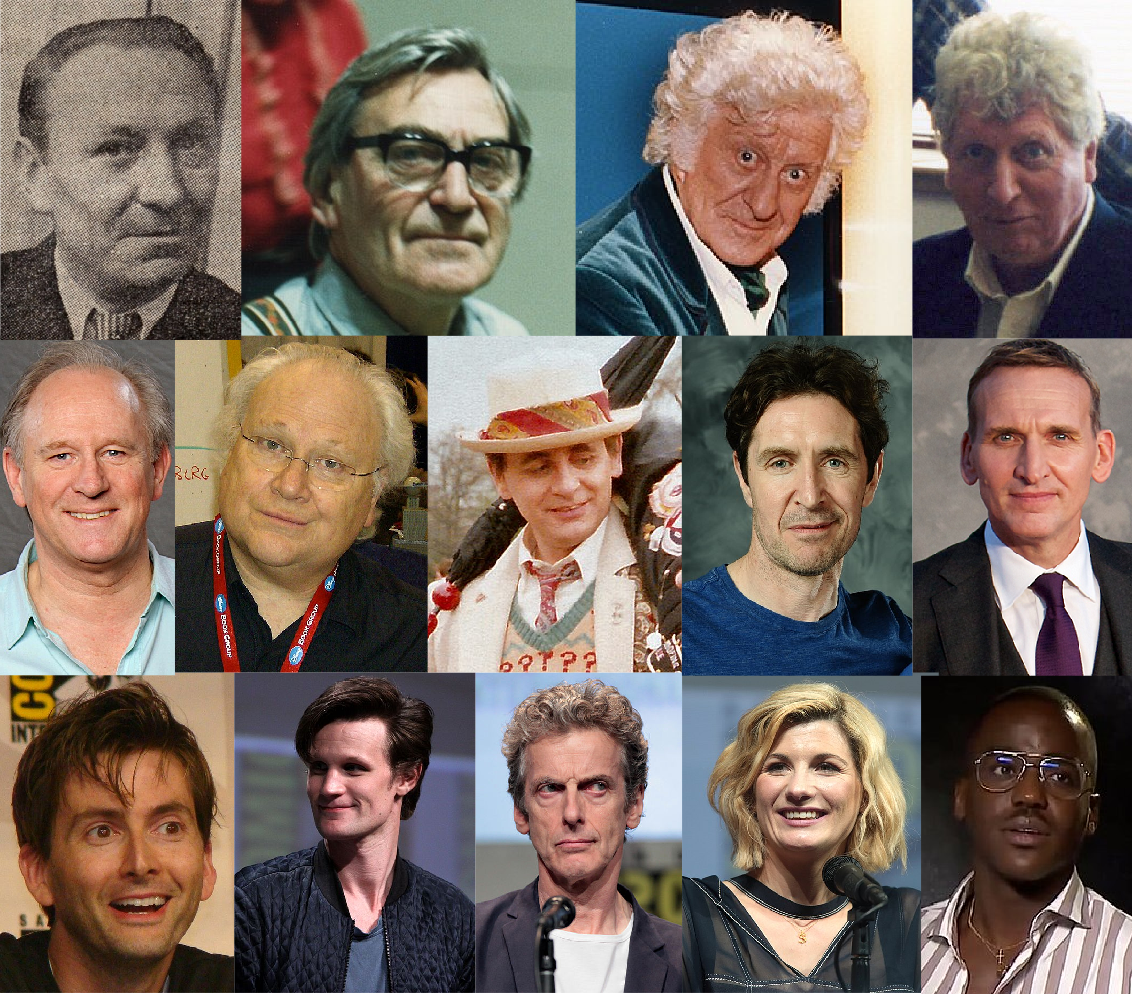|
First Doctor
The First Doctor is an incarnation of the Doctor, the protagonist of the BBC science fiction television series '' Doctor Who''. He was portrayed by actor William Hartnell. Within the series' narrative, the Doctor is a centuries-old alien Time Lord from the planet Gallifrey who travels in time and space in the TARDIS, frequently with companions. At the end of life, the Doctor regenerates; as a result, the physical appearance and personality of the Doctor changes. The concept of regeneration, initially referred to as a "renewal," was introduced when Hartnell needed to leave the series, due to his increasingly bad health, and consequently has extended the life of the show for many years. Hartnell's portrayal of the character was initially a stubborn and abrasive old man who was distrustful of humans, but he mellowed out into a much friendlier, grandfatherly figure who adored his travels with his companions. The First Doctor's original companions were his granddaughter Sus ... [...More Info...] [...Related Items...] OR: [Wikipedia] [Google] [Baidu] |
An Unearthly Child
''An Unearthly Child'' (sometimes referred to as ''100,000 BC'') is the first serial of the British science fiction television series ''Doctor Who''. It was first broadcast on BBC One, BBC TV in four weekly parts from 23 November to 14 December 1963. Scripted by Australian writer Anthony Coburn, the serial introduces William Hartnell as the First Doctor and his original companion (Doctor Who), companions: Carole Ann Ford as the Doctor's granddaughter, Susan Foreman, with Jacqueline Hill and William Russell (English actor), William Russell as school teachers Barbara Wright (Doctor Who), Barbara Wright and Ian Chesterton. The first episode deals with Ian and Barbara's discovery of the Doctor and his time-space ship, the TARDIS, in a junkyard in contemporary London. The remaining episodes are set amid a power struggle between warring Stone Age factions who have lost the secret of making fire. The show was created to fill a gap between children's and young adult programming. Cana ... [...More Info...] [...Related Items...] OR: [Wikipedia] [Google] [Baidu] |
Doctor Who (season 1)
The first season of British science fiction television programme '' Doctor Who'' was originally broadcast on BBC TV between 1963 and 1964. The series began on 23 November 1963 with ''An Unearthly Child'' and ended with ''The Reign of Terror'' on 12 September 1964. The show was created by BBC Television head of drama Sydney Newman to fill the Saturday evening timeslot and appeal to both the younger and older audiences of the neighbouring programmes. Formatting of the programme was handled by Newman, head of serials Donald Wilson, writer C. E. Webber, and producer Rex Tucker. Production was overseen by the BBC's first female producer Verity Lambert and story editor David Whitaker, both of whom handled the scripts and stories. The season introduces William Hartnell as the first incarnation of the Doctor, an alien who travels through time and space in his TARDIS, which appears to be a British police box on the outside. Carole Ann Ford is also introduced as the Doctor's gran ... [...More Info...] [...Related Items...] OR: [Wikipedia] [Google] [Baidu] |
Companion (Doctor Who)
In the long-running BBC television science fiction programme '' Doctor Who'' and related works, the term "companion" refers to a character who travels or shares adventures with the Doctor. In most ''Doctor Who'' stories, the primary companion acts as an audience surrogate. They provide the lens through which the viewer is introduced to the series. The companion character often furthers the story by asking questions (often to help the audience understand too) and getting into trouble, or by helping, rescuing, or challenging the Doctor. This designation is applied to a character by the show's producers and appears in the BBC's promotional material and off-screen fictional terminology. The Doctor also refers to the show's other leads as their “friends" or "assistants"; the British press have also used the latter term. History In the earliest episodes of ''Doctor Who'', the dramatic structure of the programme's cast was rather different from the hero-and-sidekick pattern that eme ... [...More Info...] [...Related Items...] OR: [Wikipedia] [Google] [Baidu] |
TARDIS
The TARDIS (; acronym for "Time And Relative Dimension In Space") is a fictional hybrid of the time machine and spacecraft that appears in the British science fiction television series '' Doctor Who'' and its various spin-offs. Its exterior appearance mimics a police box, an obsolete type of telephone kiosk that was once commonly seen on streets in Britain. Paradoxically, its interior is shown as being much larger than its exterior, commonly described as being "bigger on the inside". Due to the significance of ''Doctor Who'' in popular British culture, the shape of the police box is now more strongly associated with the TARDIS than its real-world inspiration. The name and design of the TARDIS is a registered trademark of the British Broadcasting Corporation (BBC), despite the fact that the design was originally created by the Metropolitan Police Service. Name TARDIS is an acronym of "Time And Relative Dimension(s) in Space". The word "Dimension" is alternatively rendered in ... [...More Info...] [...Related Items...] OR: [Wikipedia] [Google] [Baidu] |
Time Travel In Fiction
Time travel is a common theme in fiction, mainly since the late 19th century, and has been depicted in a variety of media, such as literature, television, film, and advertisements. The concept of time travel by mechanical means was popularized in H. G. Wells' 1895 story, ''The Time Machine''. In general, time travel stories focus on the consequences of traveling into the past or the future. The central premise for these stories often involves changing history, either intentionally or by accident, and the ways by which altering the past changes the future and creates an altered present or future for the time traveler upon their return home. In other instances, the premise is that the past cannot be changed or that the future is predetermined, and the protagonist's actions turn out to be either inconsequential or intrinsic to events as they originally unfolded. Some stories focus solely on the paradoxes and alternate timelines that come with time travel, rather than time travel ... [...More Info...] [...Related Items...] OR: [Wikipedia] [Google] [Baidu] |
Gallifrey
Gallifrey () is a fictional planet in the long-running British science fiction television series '' Doctor Who''. It is the original home world of the Time Lords, the civilisation to which the protagonist, the Doctor belongs. It is located in a binary star system 250 million light years from Earth. It was first shown in '' The War Games'' (1969) during the Second Doctor's trial, though it was not identified by name until '' The Time Warrior'' (1973–74). In the revived series (2005 onwards), Gallifrey was originally referred to as having been destroyed in the Time War, which was fought between the Time Lords and the Daleks. It was depicted in a flashback in "The Sound of Drums" (2007) and appeared prominently in " The End of Time" (2009–10). At the conclusion of " The Day of the Doctor" (2013), Gallifrey is revealed to have actually survived the Time War, though it was frozen in time and transported into a bubble universe, before being unfrozen and arriving at the end ... [...More Info...] [...Related Items...] OR: [Wikipedia] [Google] [Baidu] |
Time Lord
The Time Lords are a fictional ancient race of extraterrestrial people in the British science fiction television series ''Doctor Who'', of which the series' main protagonist, the Doctor, is a member. Time Lords are so named for their command of time travel technology and their non-linear perception of time. Originally, they were described as a powerful and wise race from the planet Gallifrey, from which the Doctor was a renegade; details beyond this were very limited for the first decade of the series. They later became integral to many episodes and stories as their role in the universe developed. For the first eight years after the series resumed in 2005, the Time Lords were said to have been destroyed during the Last Great Time War at some point in the show's continuity between the original series' cancellation in 1989 and the show's revival. In 2013, the 50th anniversary special "The Day of the Doctor" concerned this supposed destruction and their eventual survival. The ... [...More Info...] [...Related Items...] OR: [Wikipedia] [Google] [Baidu] |
Extraterrestrials In Popular Culture
An extraterrestrial or alien is any extraterrestrial lifeform; a lifeform that did not originate on Earth. The word ''extraterrestrial'' means "outside Earth". The first published use of ''extraterrestrial'' as a noun occurred in 1956, during the Golden Age of Science Fiction. Extraterrestrials are a common theme in modern science-fiction, and also appeared in much earlier works such as the second-century parody ''True History'' by Lucian of Samosata. Gary Westfahl writes: History Pre-modern Cosmic pluralism, the assumption that there are many inhabited worlds beyond the human sphere predates modernity and the development of the heliocentric model and is common in mythologies worldwide. The 2nd century writer of satires, Lucian, in his ''True History'' claims to have visited the moon when his ship was sent up by a fountain, which was peopled and at war with the people of the Sun over colonisation of the Morning Star. Other worlds are depicted in such early works as the 1 ... [...More Info...] [...Related Items...] OR: [Wikipedia] [Google] [Baidu] |
Doctor Who
''Doctor Who'' is a British science fiction television series broadcast by the BBC since 1963. The series depicts the adventures of a Time Lord called the Doctor, an extraterrestrial being who appears to be human. The Doctor explores the universe in a time-travelling space ship called the TARDIS. The TARDIS exterior appears as a blue British police box, which was a common sight in Britain in 1963 when the series first aired. With various companions, the Doctor combats foes, works to save civilisations, and helps people in need. Beginning with William Hartnell, thirteen actors have headlined the series as the Doctor; in 2017, Jodie Whittaker became the first woman to officially play the role on television. The transition from one actor to another is written into the plot of the series with the concept of regeneration into a new incarnation, a plot device in which a Time Lord "transforms" into a new body when the current one is too badly harmed to heal normally. ... [...More Info...] [...Related Items...] OR: [Wikipedia] [Google] [Baidu] |
Science Fiction On Television
Science fiction first appeared in television programming in the late 1930s, during what is called the Golden Age of Science Fiction. Special effects and other production techniques allow creators to present a living visual image of an imaginary world not limited by the constraints of reality. Story creation and scientific accuracy Science fiction tries to blend fiction and reality seamlessly so that the viewer can be immersed in the imaginative world. This includes characters, settings, and tools. Viewers often critique the scientific plausibility and accuracy of technology and technological concepts. In the 2020 series ''Away (TV series), Away'' a notable plot point in the eight episode, ''Vital Signs'' has astronauts listen intently for a sound boom picked up by a real-life Mars rover called InSight. Similarity, in 2022 scientists used InSight to listen for the landing of a real spacecraft. Visual production process and methods The need to portray imaginary settings or char ... [...More Info...] [...Related Items...] OR: [Wikipedia] [Google] [Baidu] |
The Doctor (Doctor Who)
The Doctor is the title character in the long-running BBC science fiction television programme ''Doctor Who''. Since the show's inception in 1963, the character has been portrayed by thirteen lead actors. In the programme, "the Doctor" is the alias assumed by a millennia-old humanoid alien, a Time Lord who travels through space and time in the TARDIS, frequently with companions. The transition to each succeeding actor is explained within the show's narrative through the plot device of " regeneration", a biological function of the Time Lord race that allows a change of cellular structure and appearance with recovery following a fatal injury. A number of other actors have played the character in stage and audio plays, as well as in various film and television productions. The Doctor has been well-received by the public, with an enduring popularity leading '' The Daily Telegraph'' to dub the character "Britain's favourite alien", while abroad the character has come to be see ... [...More Info...] [...Related Items...] OR: [Wikipedia] [Google] [Baidu] |
Second Doctor
The Second Doctor is an incarnation of the Doctor, the protagonist of the BBC science fiction television series '' Doctor Who''. He was portrayed by actor Patrick Troughton. While the Troughton era of ''Doctor Who'' is well-remembered by fans and in that era's ''Doctor Who'' literature, it is difficult to appraise in full; of his 119 episodes, 53 remain missing. Within the series' narrative, the Doctor is a centuries-old alien Time Lord from the planet Gallifrey who travels in time and space in the TARDIS, frequently with companions. At the end of life, the Doctor regenerates; as a result, the physical appearance and personality of the Doctor changes. The transformation into the Second Doctor (originally referred to as a "renewal"), a figure who was the same 'essential' character as the first but with a very different persona, was a turning point in the evolution of the series, and eventually became a critical element of the series' longevity. Troughton's Doctor was an o ... [...More Info...] [...Related Items...] OR: [Wikipedia] [Google] [Baidu] |

.jpg)



.jpg)
